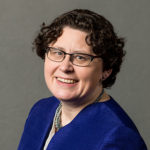Ukrainian Autocephaly, One Year On

Elizabeth A. Clark is Associate Director, International Center for Law and Religion Studies and Regional Advisor for Europe at the J. Reuben Clark Law School, Brigham Young University
In a moment that would have repercussions throughout the Orthodox world, on January 5, 2019, Ecumenical Patriarch Bartholomew officially recognized a new Orthodox Church of Ukraine (OCU). An act that may seem like an obscure internal jurisdictional shift to outsiders, Patriarch Bartholomew’s grant of a Tomos of autocephaly (an ecclesiastical grant of independence) reflects and contributes to the highly politicized role that religion has played in the Russian-Ukrainian conflict and contains the potential to dramatically change the role of religion in Ukrainian public life for years to come. (more…)

